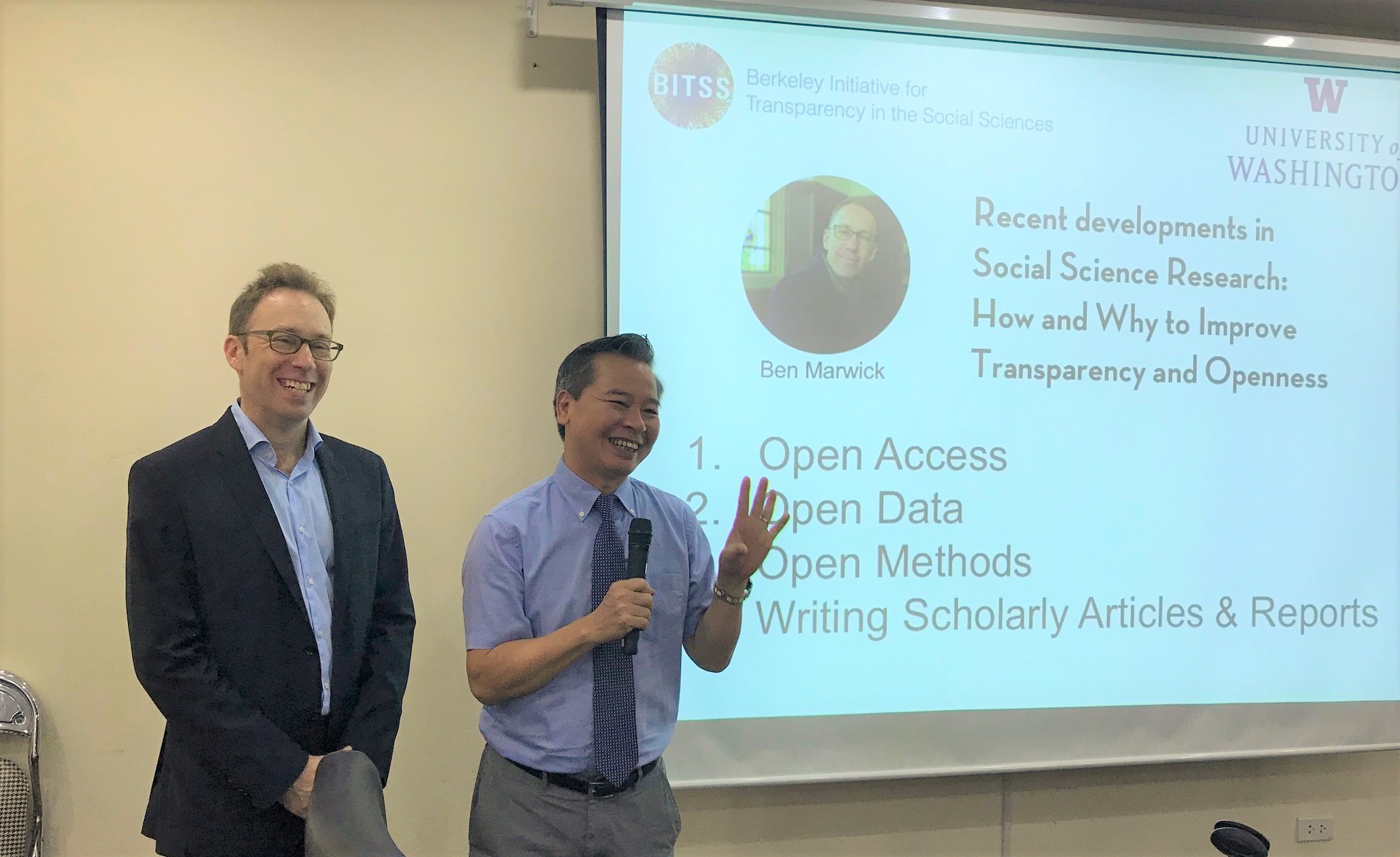
According to Professor Ben Marwick, many people mistakenly believe that open access is a special type of journal where you have to pay to publish your article. But open access generally means making an article free in any way so that anyone can read it. Why is open access necessary? Firstly, to contribute knowledge and information to the community; secondly, to improve the reach of research papers.
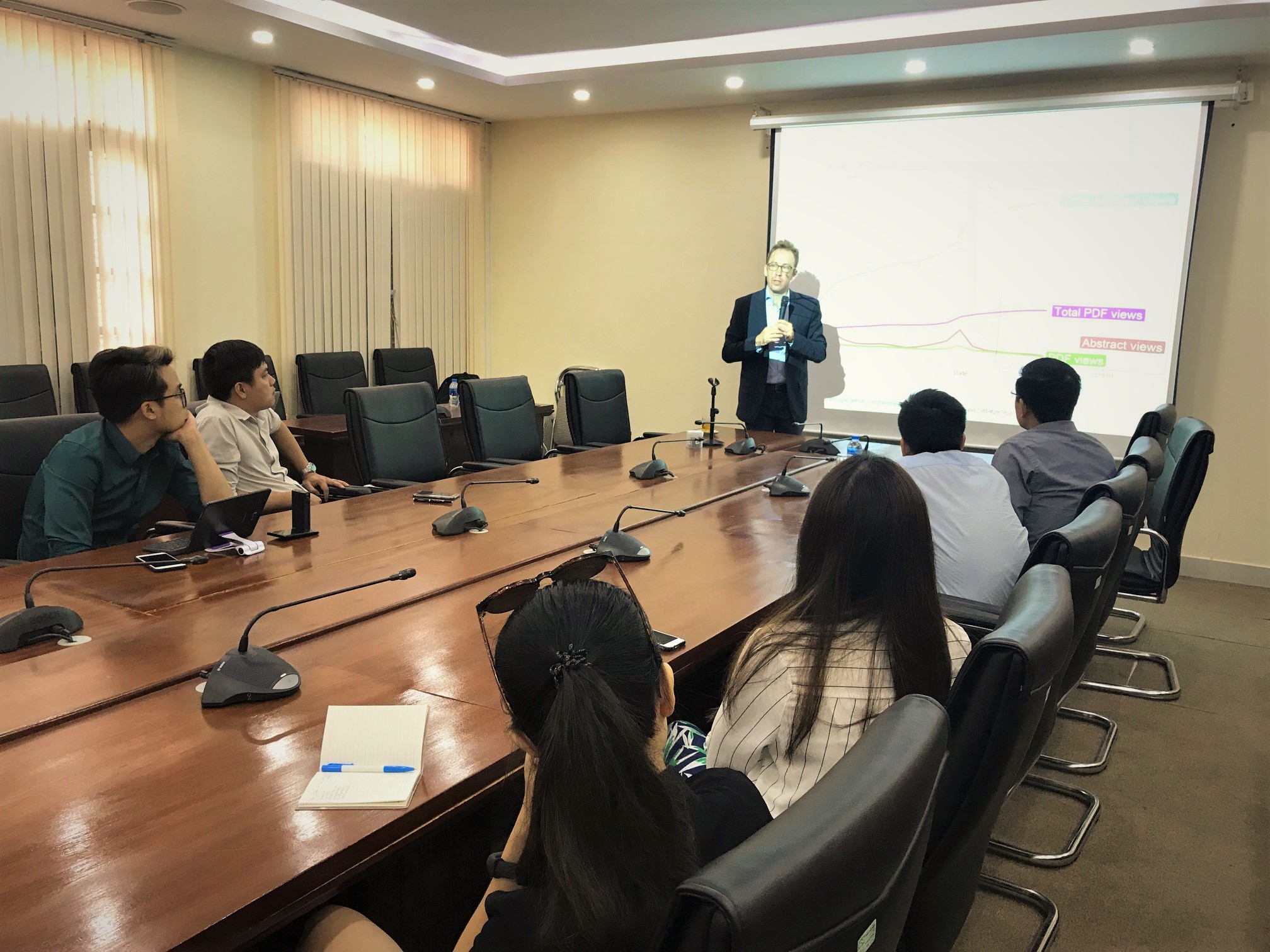
Professor Ben Marwick illustrates the publishing process with a diagram. In the initial stage, the researcher completes their research and then submits the manuscript to the publisher for peer review. The author then revises it according to the requirements and resubmits it; after two or three such peer reviews, the editor assesses the article's publishability. While the manuscript is still in Word format, the author can still make revisions until the final version reaches the editor. After that, the publisher converts it to PDF, and the author can no longer edit it. Therefore, once the final Word version is available, the author can upload it to a pre-print repository. This is a free site that anyone can access and download their article from.
Unlike traditional articles, once published in a journal, users have to pay to download the content. University libraries often pay for subscriptions to journals so that faculty and researchers can download articles and data. However, many universities lack the funds for this. Therefore, if researchers want to publish their articles in journals while still reaching as many readers as possible, preeprint is a viable solution.
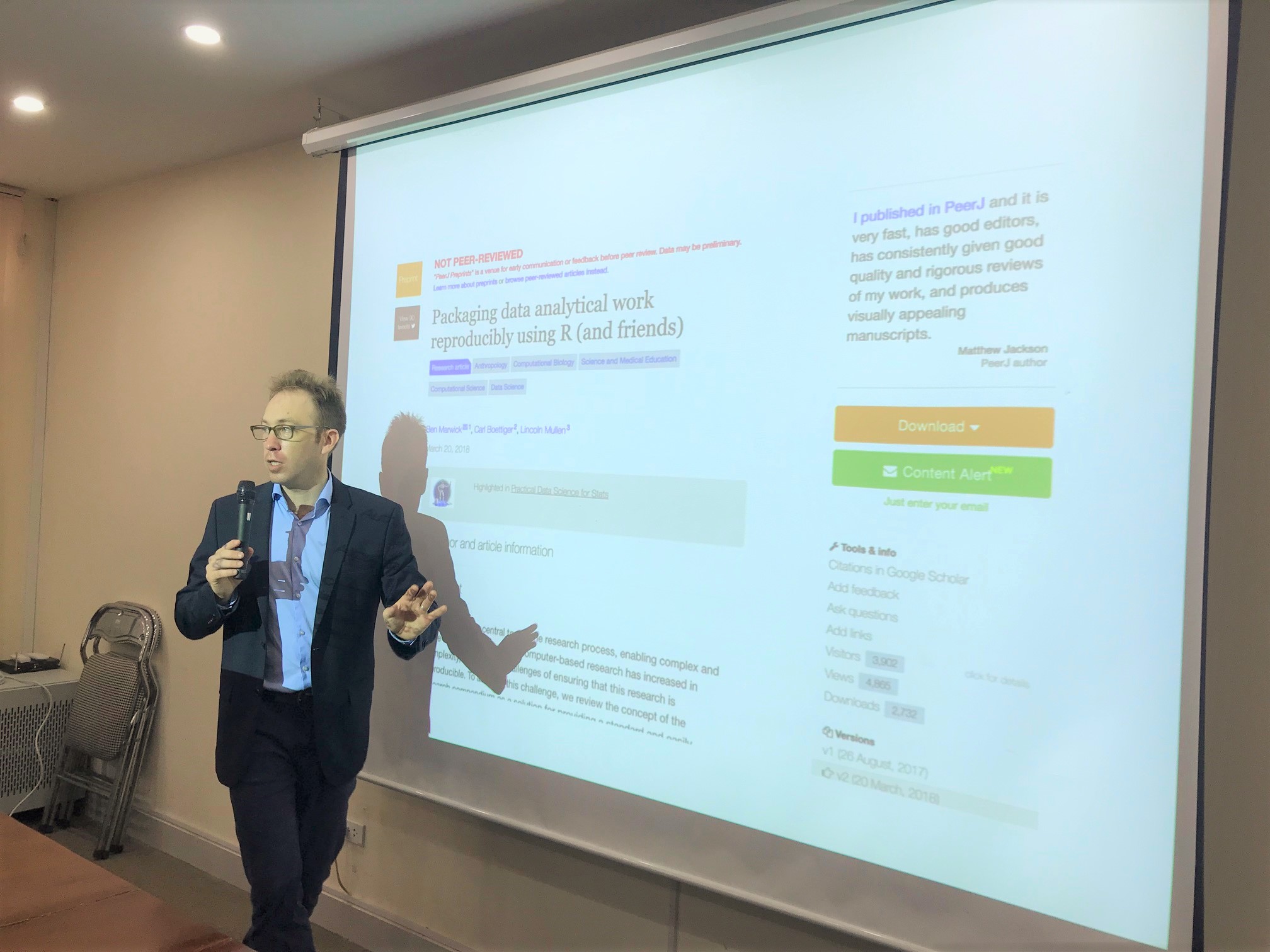
The speaker was Professor Ben Marwick (University of Washington, Seattle, USA). Over the past period, the University of Social Sciences and Humanities has regularly invited international scholars to give presentations, talks, and share scientific knowledge and information on various topics with young staff members.
Professor Ben Marwick also introduced the Social Archive Preprint data search service, which is very suitable for social science disciplines. Anyone in the social sciences can upload to this archive. This open archive is reliable, demonstrated by the fact that the website must provide you with a digital object identifier, making it easier and more visible for others to cite your articles. Secondly, it provides statistics on the traffic to your articles.
Discussing the public benefits of open access, Professor Ben Marwick argues that researchers always want to contribute to society and the community. Harvard University was one of the first to encourage its scholars to publish articles for free, and they built an open access repository in 2008. They also allow readers to comment on articles and have received thousands of comments expressing reasons for wanting to download the articles. In addition, open access brings very clear economic benefits to universities and researchers.
Regarding the personal benefits of open access, the speaker posed the question: how does your article get more citations, mainstream or open-access journals? In a study of over 100 articles, it was found that the likelihood of citation for open-access articles increased by 25-500% compared to mainstream articles. Another statistic showed that for open-access economics articles, the number of citations increased threefold, and the same was true for social science and humanities articles.
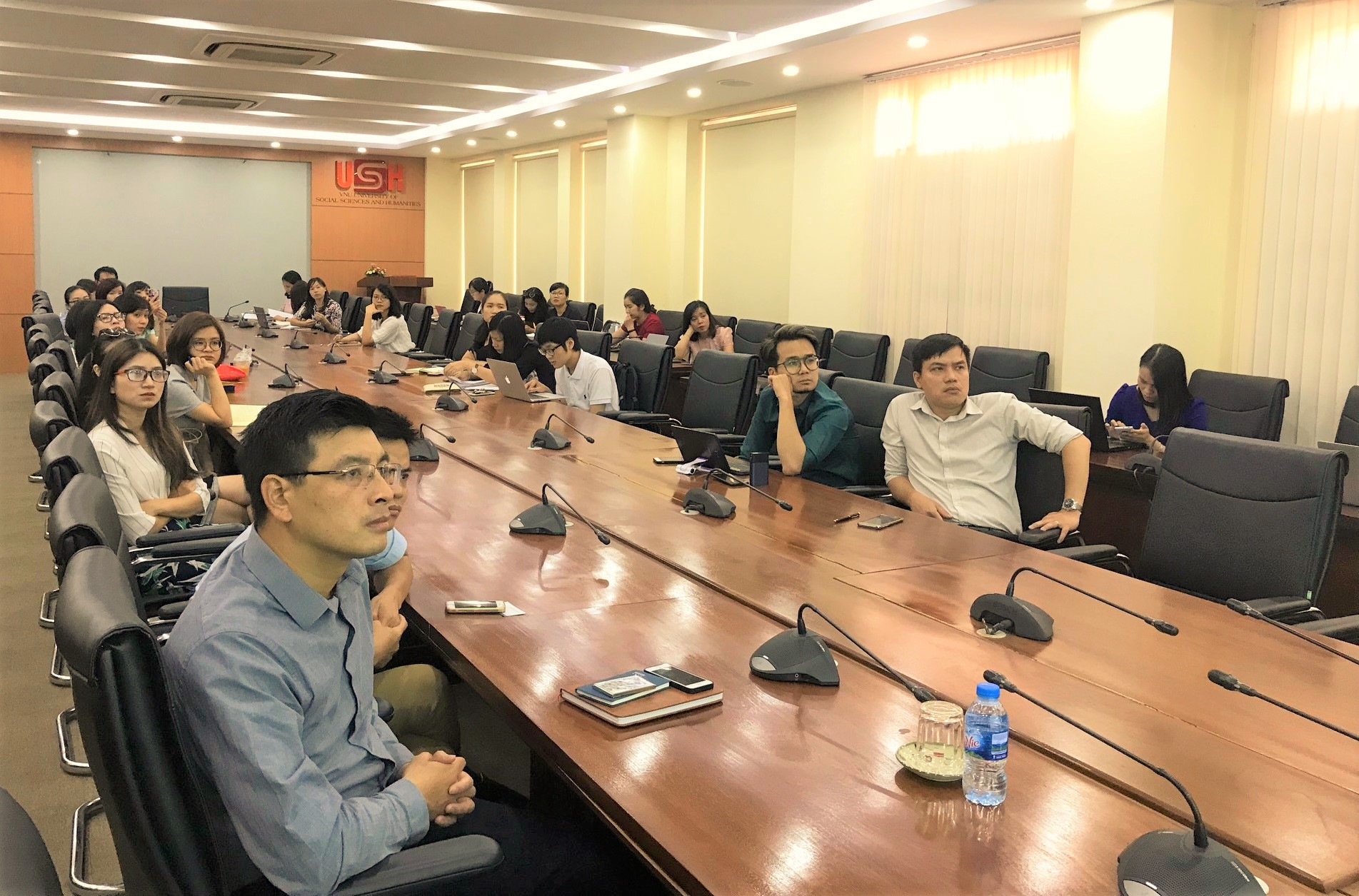
“So if you’re doing research in a rapidly developing field, you need to publish your findings on an open-access source so people can see them immediately. These websites also encourage you to share links to your papers on Facebook, Twitter, or a related Wikipedia article. Many scholars debate their papers via Twitter. Therefore, we need to acknowledge the significant importance of social media and other non-official sources,” said Professor Ben Marwick.
The speaker's advice for young researchers: firstly, if you've published a paper in a journal, you should also upload the final draft to an open-access site to broaden its reach. Secondly, if you find research papers on Google Scholar that also appear on an open-access site, you should explore it further. Thirdly, you can share the benefits of open access with your university colleagues to increase the reach of your research. Universities often have committees responsible for selecting reputable open-access sites to share with their scholars and researchers.
Speaking about open data, the speaker argued that data sharing aims to promote scientific progress in general. By sharing data with others, people can combine knowledge from many disciplines to enrich their research.
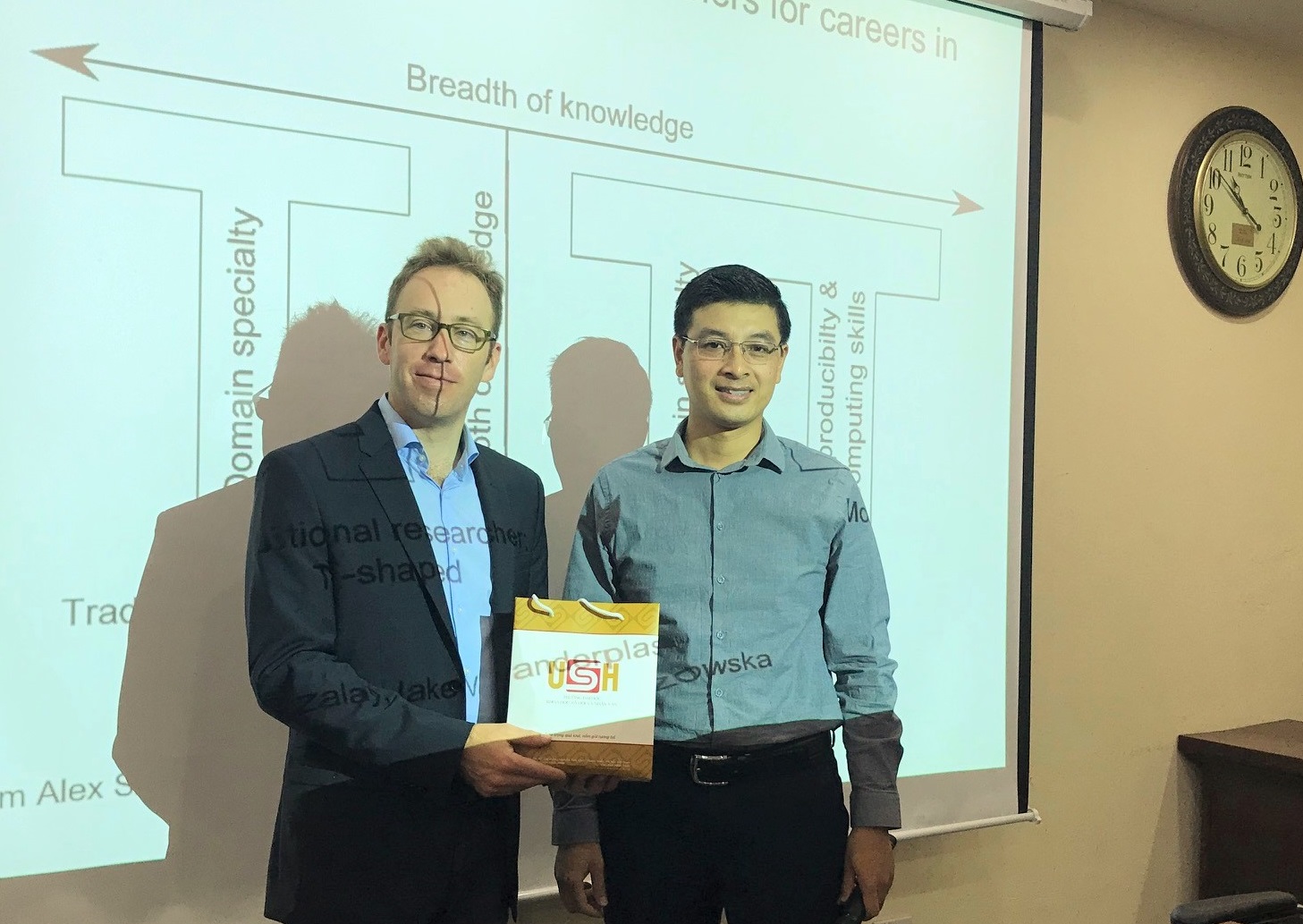
Open data can be anything that scientists share with each other: measurement results, observations; results from a computer model, experimental results; not just files, text, and audio, but also images… We have open data repositories online that users can access for free, such as zenodo.org from Switzerland, the Open Science Framework…
In reality, not everyone wants to share data. According to various studies, the likelihood of an author agreeing to share data with another researcher via email ranges from 0-66%; ideally, it should be 100%. Therefore, open data repositories are the solution. From a personal perspective, articles with shared open data also receive more citations. Furthermore, an increasing number of international journals require authors to share data on public repositories before accepting publication. Many universities also encourage data-sharing attitudes among scientists and advocate for open data policies within their institutions.
|
Professor Pham Quang Minh (Rector of the University of Social Sciences and Humanities) introduced the speaker and the presentation content: "Professor Ben Marwick is from the University of Washington, Seattle (USA). He received his PhD in Anthropology in 2008 from the Australian National University. His doctoral dissertation was on Thai Anthropology, and he is very interested in Vietnamese Anthropology, development, and history. His topic reflects the desire to improve international publication activities and enhance the quality of international articles at the University. It focuses on young lecturers – the future of our country's academia. I highly appreciate Professor Marwick's presence; his voice shows that this is not just a Vietnamese issue but an international, transnational one. Because if universities want to become research universities, they must pay attention to transparency and openness. Regarding open data, open access, and open source, Professor Marwick has written and presented extensively on these topics. The important thing is..." How can we apply these questions and methods to our own research and teaching?" |
Author:Thanh Ha
Newer news
Older news